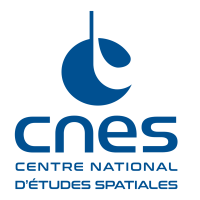The GEIPAN's mission
The GEIPAN's mission (Group for Study and Information on Unidentified Aerospace Phenomena) is to provide an operational service based on investigations related to reported observations. The GEIPAN process is as follows:
- Collecting testimonies : collect the observations of witnesses on French territory and ensure the veracity of each observation;
- Analysis of testimonies : seek an explanation to these observations by comparison to known phenomena while relying on a network of investigators, institutional partners, experts and to answer to witnesses;
- Anonymization and archiving of testimonies : make a file as complete and precise as possible to allow the possible further study of the phenomenon observed by scientific teams external to the CNES;
- Public information: inform the public through the public website of the different cases and conclusions. Respond to media inquiries.
The GEIPAN also has a mission dedicated to supporting the scientific exploitation of UAP observations and thus promoting the advancement of knowledge of phenomena associated with UAPs by relying on the scientific community, who can benefit from it for their own knowledge.
GEIPAN is not a specialist of global UFO phenomenon nor a research organization on extraterrestrial life or on advanced or futuristic technologies that can explain extraterrestrial visits. This is not the case; it is neither in its prerogatives nor in its capacity in accordance with the CNES's missions.
The GEIPAN uses UAP (Unidentified Aerospace Phenomena) and not UFO. The term UFO has the double default of talking about an object, whereas it is not always an object, and has a saucer or extraterrestrial connotation.
The GEIPAN makes the information it collects available to the scientific community and to the general public.
How does the GEIPAN work ?
GEIPAN is attached to the Deputy Technical and Digital Directorate of CNES. It is composed of CNES employees assisted by institutional partners and volunteers.
The GEIPAN works with a network of investigators that are located throughout France. These investigators take part in the examination of cases and can also when necessary and asked by the GEIPAN, do field investigations to gather further information. Investigations are done according the GEIPAN’s guidelines that are defined in the investigator’s guide.
The GEIPAN also relies on external services, mainly institutional partners to conduct investigations :
- The public authorities with which GEIPAN has built agreements that allow to get consolidated environment informations during UAP observation : National Gendarmerie, Air and Space Force, Civil Aviation, weather institute, etc.
- The academic community : CNRS and University.
- Other public utility entities.
The group also relies on a panel of multidisciplinary and scientific experts, who checks the most complex observation cases. They provide a consolidated scientific support for the analysis of cases.
GEIPAN reports its work to a steering committee chaired by a recognized person from the aerospace world and composed of representatives of CNES and its institutional partners. This committee makes recommendations to CNES top level management.
GEIPAN’s funding comes from CNES to carry out its mission.
FAQ GEIPAN
1. What is GEIPAN?
- GEIPAN (Group for the Study and Information of Unidentified Aerial/Aerospace Phenomena) is a technical department of the CNES (French Space Agency). Its mission is to collect, analyze, investigate, publish, and archive reports of UAP (Unidentified Aerial/Aerospace Phenomena) sightings.
- It also provides information and data to the public regarding UAPs and UFOs.
2. Is GEIPAN an independent structure?
- No, GEIPAN is a technical department of CNES (Centre National d’Études Spatiales), a public, industrial and commercial institute in charge of the definition and implementation of the French space policy. CNES operates under the supervision of the French government; Economy & Finance, Education & Research and the Defense Ministries
- GEIPAN is integrated within CNES as an expertise department.
3. Does GEIPAN carry out a national security or space surveillance mission?
- No. GEIPAN does not involve in a security topic nor a sky and space awareness or alert service.
- For any questions or alertsregarding your safety, please contact the appropriate authorities (police, gendarmerie, civil security, etc.).
4. Does GEIPAN research UFOs and extraterrestrial life?
- Contrary to popular belief, GEIPAN is not a research group on UFOs and extraterrestrial life, or other paranormal phenomena.
5. Does GEIPAN operate continuously?
- No. GEIPAN collects testimonies, analyzes the data, and then conducts an investigation using a multidisciplinary approach combining physical sciences and human factors.
- GEIPAN uses only recognized scientific knowledge, without speculation or unverified hypotheses.
- GEIPAN is not focused to respond immediately to requests related to UAP observations.
6. Does GEIPAN guarantee the confidentiality of testimonies?
- Yes. GEIPAN's mission is to publish its work while ensuring the anonymity of witnesses and the published documents linked to the investigation.
- Refer to the PRIVACY POLICY section regarding the protection of personal data collected for the purposes of investigations.
7. What is the methodology used?
GEIPAN follows a methodology summarized in seven key stages:
1. Receiving the testimony
2. Creating the file
3. Initial analysis
4. Investigation and processing
5. Classification into A, B, C, D
6. Anonymizing the files
7. witness information and publication
8. How does GEIPAN classify observation cases?
The classification process is done according a quantitative and qualitative assessment of two parameters: the consistency (C) of the observation and the residual strangeness (E) after investigation.
- Strangeness (E): This is the measure of the residual strangeness after comparison with known phenomena hypotheses.
- Consistency (C): This is the product of the quantity and the reliability of the data submitted and collected during the investigation. The objectivity of this data is weighted according to a specific table, part of the GEIPAN methodology.
Classification categories:
- Classification A: Phenomenon perfectly identified after investigation.
- Classification B: Phenomenon probably identified after investigation.
- Classification C: Phenomenon not identified due to lack of data or information.
- Classification D: Phenomenon not identified after investigation.
A revisit process, or a new analysis, of cases C and D may be conducted if new information related to these cases is communicated to GEIPAN after the initial investigation.
9. Who can testify?
- Anyone can provide testimony.
- GEIPAN is not sized to respond to indirect witness(es) of an UAP observation (i.e. reported by third parties).
- Testimony from minor witness is subject to parental authorization.
10. What is the place of human testimony in the investigation?
- Human testimony is at the core of the process and methodology for GEIPAN.
- GEIPAN only investigates phenomena reported by one or more direct witnesses of the observation.
- The witness must fulfil the technical questionnaire (QT), designed to gather the essential and substantial information to open an investigation.
- Visual, material or detection matters such as sketches, photographs, videos, etc. may complete the QT.

